Communities take part in Farmer Field Schools and learn new skills to tackle the effects of the El Niño food insecurity crisis.
El Niño's impact
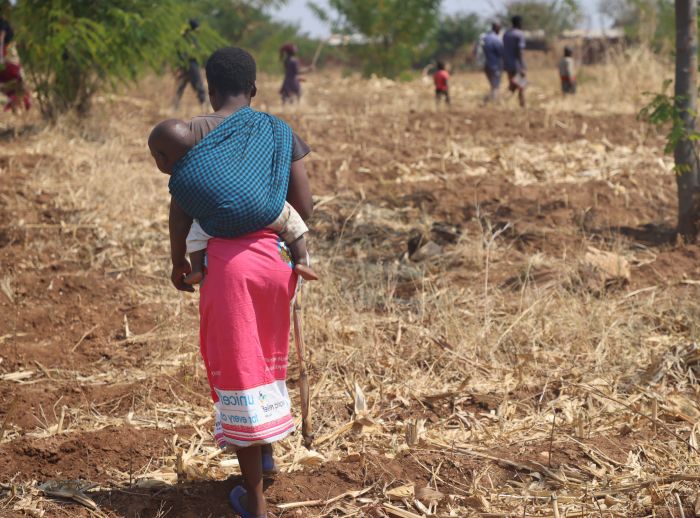
El Niño is a climate pattern that manifests in unusual warming of surface waters in the eastern Pacific Ocean, which in turn causes erratic weather shifts.
The 2024 El Niño season, which kicked off in November 2023, is bringing dry conditions and less rainfall than usual across much of southern Africa, including Malawi. In Lilongwe alone, over one hundred thousand households are affected, with crop losses experienced over a huge 130,000 hectares of farm land.
While crops are drying up due to drought, so are water points. Water shortages are a challenging issue, which increases the risk of diseases.
Farmer Field Schools
Oxfam and partner organisations are working with people in the areas of food security, WASH (water and sanitation), gender and protection.
As part of the Irish Aid funded Ireland's Civil Society Partnership (ICSP) programme, Oxfam works with local partner Evangelical Lutheran Development Service (ELDS) to run Farmer Field Schools.
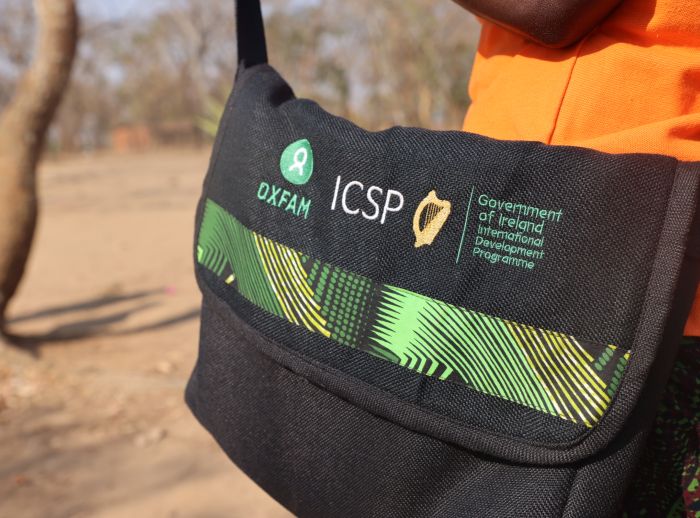
Oxfam and partner organisations are working with people in the areas of food security, WASH (water and sanitation), gender and protection.
As part of the Irish Aid funded Ireland's Civil Society Partnership (ICSP) programme, Oxfam works with local partner Evangelical Lutheran Development Service (ELDS) to run Farmer Field Schools.
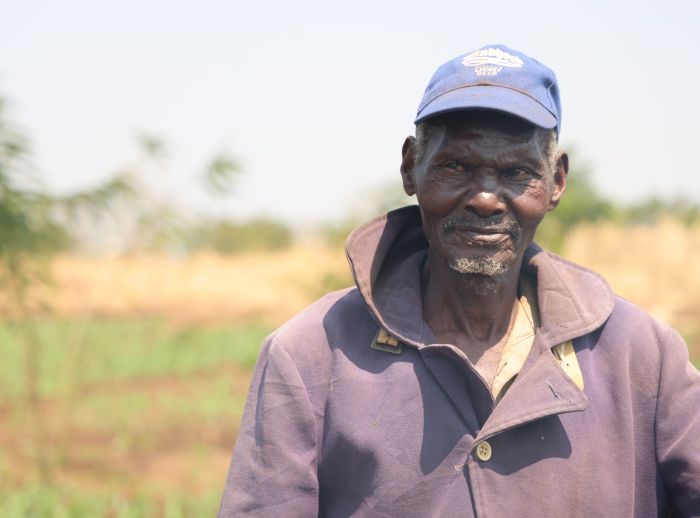
Zambaya Siliya from a Nyanja Village in Malawi, takes part in these Farmer Field Schools (FFS).
It helps him to learn new skills to tackle the effects of the El Niño food insecurity crisis.
At 81 years old, he has seen huge changes in his community, but none in his living memory have had such an impact as the El Niño food insecurity crisis.
FFS is a group-based learning method where farmers gather in their fields to experiment with different farming practices.
These include things like learning how to improve soil health. The aim is to increase the amount of crops grown by using sustainable farming practices.
Farmers gain practical experience by tackling real issues, like pest control or water management.
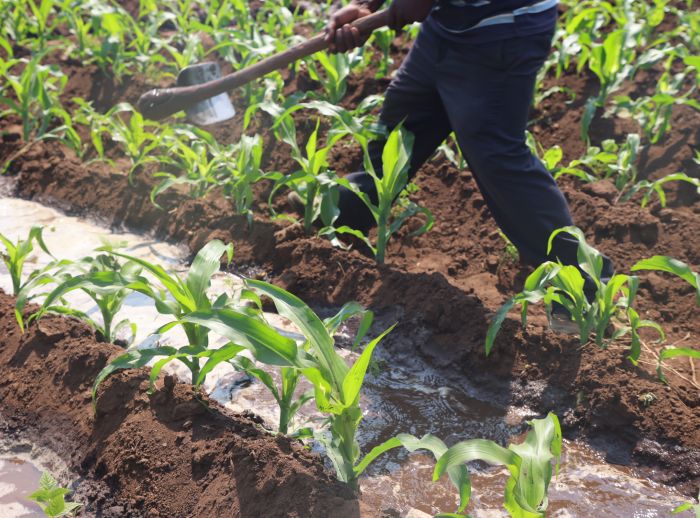
FFS is a group-based learning method where farmers gather in their fields to experiment with different farming practices.
These include things like learning how to improve soil health. The aim is to increase the amount of crops grown by using sustainable farming practices.
Farmers gain practical experience by tackling real issues, like pest control or water management.
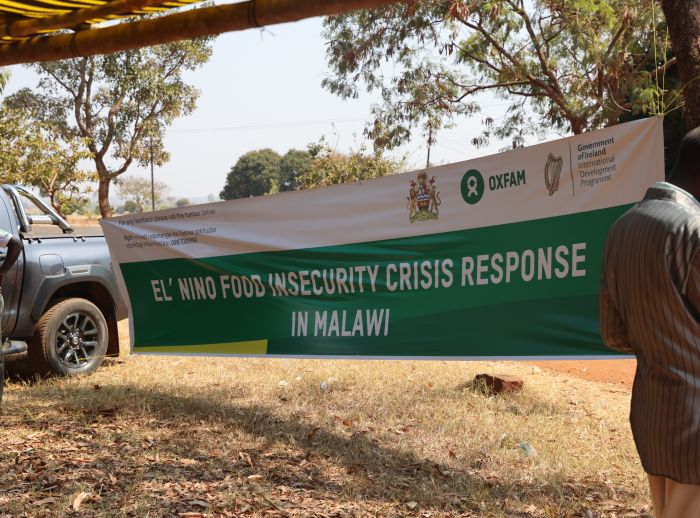
The ICSP programme has also delivered cash-based food assistance of 50,000 Mwk (€26) to over 2,000 households in Malawi.
This work was carried out by Oxfam and local partner organisations - Evangelical Lutheran Development Service (ELDS), and Concerned Youth Organisation (CYO).
.
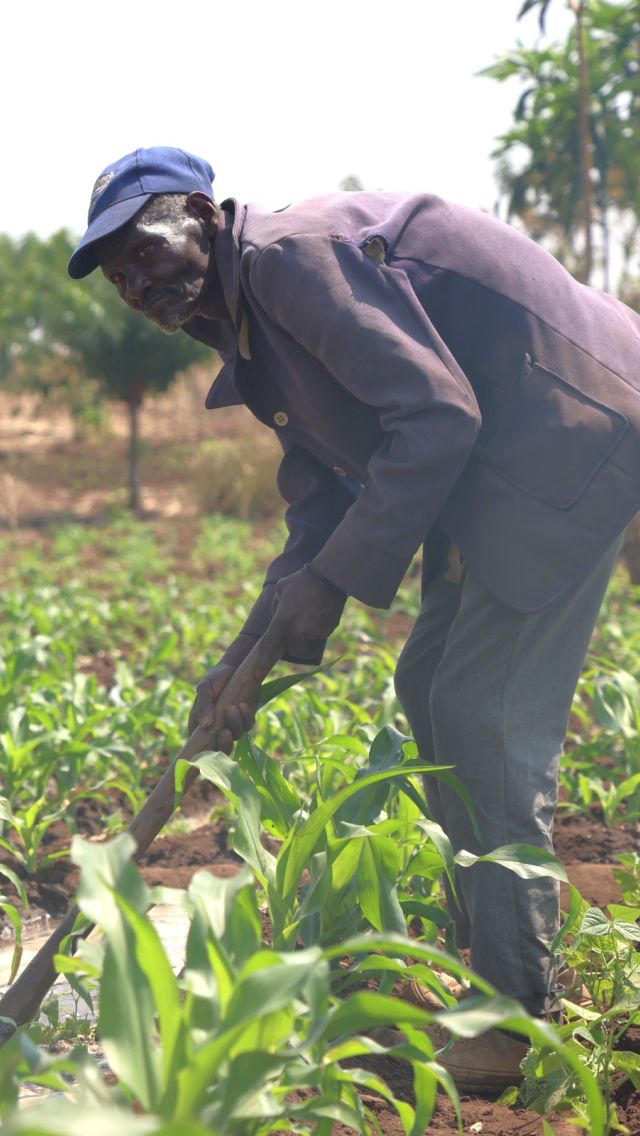
More needs to be done as hunger crisis continues in Southern African countries
Resilient and hard-working people like Zambaya are used to supporting themselves, but everyone has a breaking point. Now, they urgently need your help.




